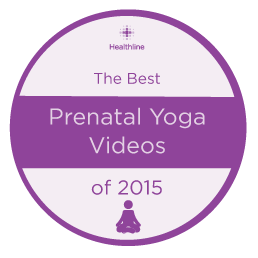How to Get Enough Protein During Pregnancy for Vegetarians
When I was pregnant with my first child, I was working as an ESL teacher and when I told my teaching colleague that I was expecting, her immediate joy quickly changed to concern as she blurted out: “…but you’re vegetarian!” She automatically thought I couldn’t get enough protein during pregnancy because I was a vegetarian. It’s easy for me to laugh about it now (as I watch my three kids whirl through the house like mini tornados), but I remember how alarmed I was for the rest of that day. Luckily, I happened to have an appointment with my doctor for the very next day and she put all my fears to rest. Yes, protein is very important during pregnancy and it’s true that meat and fish are great sources of protein, but there are also plenty of good vegetarian sources of protein. Vegetarians may need to work a little harder to get the recommended 80-100 grams of protein daily in pregnancy, but it can be done. In addition to trying to get enough protein during pregnancy, vegetarians must be aware of the need for food combining, in order to get the nine essential amino acids for optimal nutrition.
The Pregnant Vegetarian’s Guide to Getting Enough Protein
Q: Why did the tofu cross the road? A: To prove he wasn’t chicken. – The joke may be bad but there’s no denying that soy is good, really good for you! In fact, tofu tops the list of vegetarian protein sources, just 1 cup of tofu contains 20 grams of protein (which is approximately 25 percent of the protein you need when you’re pregnant). Soy milk is another great source of veggie proteins so down a glass every morning to make sure you meet your protein requirements for the day. Normally, tofu is one of my fav foods but when I was pregnant, I just couldn’t get enough of miso and tempeh, I think it was the earthy taste that appealed to my crazy pregnancy cravings (I craved dirt!*). * “Pica is the practice of craving substances with little or no nutritional value. Most pregnancy and pica related cravings involve non-food substances such as dirt or chalk. The word pica is Latin for magpie which is a bird notorious for eating almost anything.” AmericanPregnancy.org Be careful not to eat too much soy during pregnancy, though. It is loaded with phytoestrogens. soy also contains Phytic acid which can block the absorption of calcium and other important minerals. Eat soy in moderation.
As a millennial on the cusp of Generation X, I can honestly say that Popeye was the only reason I ate spinach as a kid! Spinach may not be popular with kids but it is one of the healthiest foods for children, including unborn babies. 1 cup of cooked spinach has over 5 grams of protein which is why you should include it in your vegetarian pregnancy diet plan. It also has 250mg. of calcium, essential for bone growth and storing calcium in your body for later milk production. Treat yourself to delicious high-protein meals such as a spinach and tofu salad with a miso dressing or a buckwheat and ricotta gnocchi with cream and spinach… or if you’re pressed for time, just make yourself a banana spinach smoothie. Asparagus, beet greens, and mustard greens are also very good vegetarian sources of protein.
Beans have a high protein and fiber content which is why the ‘musical fruit’ should be your new best friend! Pinto beans, kidney beans, black beans, navy beans, and lima beans are all good sources of protein so have a large serving of three bean salad for lunch. This is perfect for working women since the preparation time for this meal is less than ten minutes. It takes a little longer to cook lentils but they have an even higher protein content.

Nuts and Seeds
The world my kids are growing up in is so different from the one I experienced as a child, but there’s one constant – our PB & J sandwiches! Peanut butter is deliciously smooth and creamy and it’s easy to see why it’s remained a favorite with kids and adults alike. A single serving of peanuts (1/3 cup) can provide more than 20 percent of your required daily intake of protein. Similarly seeds, especially pumpkin seeds are a good vegetarian source of protein as half a cup of these seeds contain 8 grams of protein. According to nuts.com 1 ounce of each:
- almonds = 6g protein, 155 calories
- pistachios = 5.5 g protein, 155 calories
- pecans = 2.7 g protein, 195 calories
- sunflower seeds = 6.4 g protein, 173 calories
I love yogurt – as much for its taste as its versatility. You can use yogurt in just about anything from a breakfast smoothie to a salad dressing and even yummy yogurt fruit pops! A single container of Greek yogurt provides almost 20 grams of protein so you might want to stock up on it for the next nine months!
The foods I have listed above are for a vegan diet (excludes eggs, dairy, and animal products). However, eggs and milk are excellent sources of protein – 2 boiled eggs will provide over 30 percent of your protein requirements while a glass of milk (1 percent fat) will provide 20 percent. So if you are an ovolactovegetarian (includes dairy and egg products), ovovegetarian (includes eggs), or lactovegetarian (includes dairy products), modify your diet to include these protein-rich foods.
Can pregnant women take protein supplements?
Protein supplements such as whey protein have an exceptionally high protein content. While most studies show that it is unlikely that these supplements will have a negative impact on an unborn baby, pregnant women are advised to avoid whey protein supplements by some websites, while others recommend it is safe to eat/drink as long as it’s not the sole source of protein in the pregnant woman’s diet.
One more very important element to consider in a vegan or vegetarian diet is food combining. There are 9 essential amino acids in protein. Pregnant vegetarians should consume “complete proteins” by combining foods that together provide an adequate amount of all nine essential amino acids. The plant foods she eats must complement each other’s limiting amino acid, bringing the total between the two foods to an adequate amount. Breastfeeding vegetarians must supplement their diet with vitamin B12 or their baby will also be deficient in B12.
Vegetarians tend to eat too many carbs. So how do you get enough protein without the carbs?
Here are 6 tips for vegetarians to get more protein and less carbs:
- Eat your protein before you eat anything else. Your blood sugar will not rise as high if you start your meal with protein.
- Cheese, cheese, and a little more cheese, please. One ounce of cheese has 7 grams of protein and lots of calcium.
- Start the day with eggs. The Brewer Pregnancy Diet says you should eat two eggs every day during pregnancy. Eggs are high in protein, low in calories, and are considered one the “perfect” foods.
- Almonds, walnuts, cashews. Nuts can boost the protein content of any meal, and,of course, are great snacks between meals.
- Greek yogurt is about as high protein as you can get in a cup. Most Greek yogurts have approximately 20 grams of protein in a cup. Add fruit, add yogurt to sauces instead of sour cream, add it to smoothies. There are infinite ways to eat Greek yogurt and get that extra protein your pregnant body needs.
- Smoothies are a great way to get extra protein but be careful of whey protein powder. It’s better to get your protein from less processed sources like hemp, flax, chia, nuts, nut butter.
According to Whattoexpect, protein isn’t the only nutrient that we vegan mommies need to focus on, everything from folic acid and calcium to B vitamins and vitamin C are essential for fetal health. Prenatal supplements can help prevent developmental problems but makes sure you talk to your doctor first. While these supplements can help you meet your nutritional requirements, they are not a substitute for a healthy diet.














